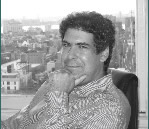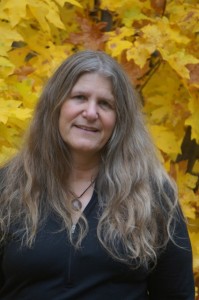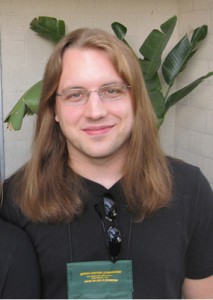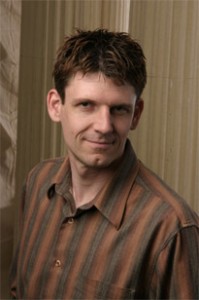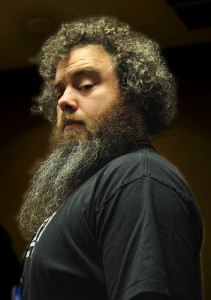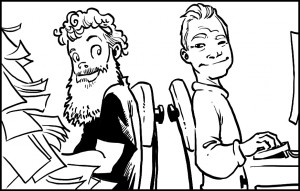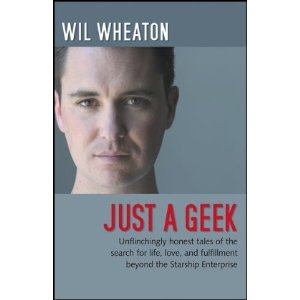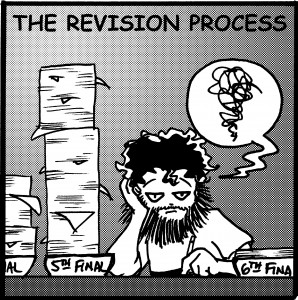This is a Worldbuilders Blog.
At its heart, Worldbuilders is a charity for people that love books.
Given that so many of Worldbuilder’s supporters are readers, it’s not terribly surprising that a lot of them are aspiring writers as well.
Every year we run a few auctions where authors and editors offer to give folks critical feedback on their unpublished manuscripts. Generally speaking, every year, they’re some of our most successful auctions.
Since people seem to like them so much, this year we’re delighted to offer more critiques than ever before. We have an even dozen read-and-critiques being offered by skilled industry professionals: authors, agents, and editors.
First, I really want to thank everyone who is donating their time and talent to these auctions. You are all shining examples of humanity.
Second, I’d advise you to read the details of each auction carefully. Each of the critiques below is different, some are for the first 15,000 words of a manuscript, others are for anything up to 100,000 words. The different professionals have different skill sets and are offering different things.
Third, some of the folks below have laid out some guidelines in terms of when and how quickly they can offer their critiques. I’m going to add a general caveat on top of that, asking that you respect the fact that all the professionals below are busy people. That means if you win a critique with them, you’re going to have to work with them to schedule a time that works for both of you.
So, please be understanding. Besides, you rush a miracle man, you get lousy miracles.
If you win my critique, for example, it can’t happen until mid-February at the very earliest. I’m busy with revisions, and I simply won’t have time before that.
Fourth, when the auctions below mention that they’ll read “X pages” of a manuscript, assume they’re talking standard manuscript format. That means, generally speaking, double-spaced, 12 point courier font, one inch margins.
Finally, if you’re an aspiring author, but you don’t have the cash to win one of these auctions, don’t despair. I’m going to be throwing a *second* read-and-critique of my own into the lottery. That means if you donate at least $10 to Heifer International over on the Worldbuilders Team Page, you have a chance to win my critique, as well as over a thousand cool books and other goodies…. (more details below)
Also, need I mention that a professional critique would be an excellent gift for that hard-to-shop-for aspiring author in your life? It would. It seriously would.
Okay, on to the show:
- A critique of the first 20,000 words of your manuscript by literary Agent Matt Bialer.
Matt Bialer (literary agent) will read and evaluate the opening chapters of one manuscript (up to 20,000 words) within three months of submission, not including the last few weeks of December. He will read and critique, and help the author think about the issues that could be raised by editors at publishing houses.
He will write a general evaluation of the book, both strengths and weaknesses, but line editing is NOT included. If the book is fantastic or has the potential to be fantastic then offering representation is not out of the question — but representation is not a guarantee.
Pat’s Note: Matt is my agent, and I really can’t say enough good things about him. He worked with my The Name of the Wind before we sold it to a publisher, and his advice was invaluable. He knows the genre inside and out, and he gives great editorial feedback.
To bid on Matt’s read and critique, head over to the auction.
- A critique of a sci-fi/fantasy short story up to 30,000 words by award-winning author Brenda Cooper.
Award-winning Pacific Northwest writer Brenda Cooper will read and critique a science fiction or fantasy short story up to 30,000 words. Her novel-length work is primarily science fiction written for nine to ninety year old readers, and her short stories range across genres and age-groups.
Brenda Cooper writes science fiction and fantasy novels and short stories. Her most recent novel is THE CREATIVE FIRE, which came out in November, 2012 from Pyr. Brenda is also a technology professional and a futurist.
In addition to the critique, Brenda will provide a copy of her latest novel, The Creative Fire.
To bid on Brenda’s read and critique, head to the auction over here.
- A critique of the first 100 pages or 3 chapters of your novel by author Scott Lynch.
Joshua Palmatier (DAW Books author of the “Throne of Amenkor” trilogy and the “Well of Sorrows” trilogy written as Benjamin Tate) will read and evaluate the first 100 pages of your novel within 3 months of submission. The manuscript must be in standard manuscript format (typed, double-spaced, 12 pt font, etc). He will write a general evaluation of the novel’s opening and mark up the manuscript using comments and track changes in the document itself, although this will NOT be a formal line or copy edit, simply commentary at specific points of the manuscript.
Joshua Palmatier has five dark, epic fantasy novels published by DAW, four short stories in various anthologies, and has co-edited two anthologies with Patricia Bray. His experience is mostly with all forms of fantasy, science fiction, and horror. His intent will be to offer editorial advice on how to improve your novel and to use his experience as both author and editor to make it the best it can be.
In addition to the manuscript review, Joshua will provide the winner with two signed, personalized editions of his books: WELL OF SORROWS and AFTER HOURS: TALES FROM THE UR-BAR.
To bid on Joshua’s critique, head to the auction over here.
- A critique of 7500 words of your short story by Joshua Palmatier and Patricia Bray.
(This is Patricia, not Joshua, obviously.)
Joshua Palmatier and Patricia Bray (co-editors of the DAW Books anthologies AFTER HOURS: TALES FROM THE UR-BAR and THE MODERN FAE’S GUIDE TO SURVIVING HUMANITY) will each read and evaluate your short story (up to 7500 words in standard manuscript format) within six weeks of submission. Each author will write a general evaluation of the story and mark up the manuscript using comments and track changes in the document itself, although this will NOT be a formal line or copy edit, simply commentary at specific points in the short story. Patricia Bray is the author of six fantasy novels from Bantam Spectra and has published numerous novellas and short stories in various anthologies.
Joshua Palmatier has five dark, epic fantasy novels published by DAW and four short stories in various anthologies. Their experience is mostly with all forms of fantasy, science fiction, and horror. Their intent will be to offer editorial advice on how to improve your story and to use their experience as both authors and editors to make it the best it can be.
In addition to the manuscript review, they will provide the winner with two signed, personalized editions of the books: THE FIRST BETRAYAL by Patricia Bray, WELL OF SORROWS by Benjamin Tate (pseudonym of Joshua Palmatier), and AFTER HOURS: TALES FROM THE UR-BAR.
To bid on Joshua and Patricia’s read and critique, head to the auction over here.
- A critique of your manuscript up to 7,500 words by author Bradley P. Beaulieu.
Bradley P. Beaulieu is pleased to offer one story or chapter critique of up to 7,500 words. Brad will draft a formal review that will cover such things as how well the story opens, complicates, and closes, how well the characterization works, dialogue, tone, pacing, tension, and a host of other issues. Essentially, he’ll provide a formal review on the positives and negatives found in the story.
Bradley P. Beaulieu is the author of The Winds of Khalakovo and The Straits of Galahesh, the first two books in The Lays of Anuskaya trilogy. The concluding book in the trilogy, The Flames of Shadam Khoreh, will be released April of 2013. In addition to being an L. Ron Hubbard Writers of the Future Award winner, Brad’s stories have appeared in various other publications, including Realms of Fantasy Magazine, Orson Scott Card’s Intergalactic Medicine Show, Writers of the Future 20, and several anthologies from DAW Books. His story, “In the Eyes of the Empress’s Cat,” was voted a Notable Story of 2006 in the Million Writers Award.Mailing details and contact with Bradley will be set up following the auction.
To bid on Brad’s read and critique, head to the auction over here.
- A critique of submission packet by author and editor Laura Anne Gilman.
Laura Anne Gilman, the former executive editor for Penguin/NAL/Roc Books, and author of over twenty novels, will read and evaluate your submission packet (cover letter, synopsis, and first three chapters up to 15,000 words). She will read and critique, with an eye toward catching – and keeping- an editor or agent’s attention, and help you create hooks that will encourage the reader to ask for “more, please!” She cannot promise to provide any introductions to agents or editors…but she won’t rule it out, either, if you knock her socks off.
Laura Anne Gilman spent fifteen years on the editorial side of the desk, including 6 years running the Roc SF imprint, before becoming a full-time writer in 2003. She also runs d.y.m.k. productions, an editorial services company.
Pat’s Note: This is something really cool folks. I would have given a kidney for something like this during the two years I spent trying (and failin) to get an agent to look at The Name Of the Wind.
To bid on Laura’s read and critique, head to the auction over here.
- A critique of up to 25,000 words of your manuscript by fantasy author D.B. Jackson (aka David B. Coe)
 D. B. Jackson, who also writes as David B. Coe, is the award-winning author of more than a dozen novels and the occasional short story. His most recent novel, THIEFTAKER, written under the D.B. Jackson pen name, is the first volume of the Thieftaker Chronicles, a series set in pre-Revolutionary Boston that combines elements of urban fantasy, mystery, and historical fiction. The second volume, THIEVES’ QUARRY, is currently in production and will be published in 2013.
D. B. Jackson, who also writes as David B. Coe, is the award-winning author of more than a dozen novels and the occasional short story. His most recent novel, THIEFTAKER, written under the D.B. Jackson pen name, is the first volume of the Thieftaker Chronicles, a series set in pre-Revolutionary Boston that combines elements of urban fantasy, mystery, and historical fiction. The second volume, THIEVES’ QUARRY, is currently in production and will be published in 2013.
Writing as David B. Coe, he has published the LonTobyn Chronicle, a trilogy that received the Crawford Fantasy Award as the best work by a new author in fantasy, as well as the critically acclaimed Winds of the Forelands quintet and Blood of the Southlands trilogy. He has also written the novelization of director Ridley Scott’s movie, Robin Hood, starring Russell Crowe. David’s books have been translated into a dozen languages.D.B./David co-founded and regularly contributes to the Magical Words group blog (http://magicalwords.net), a site devoted to discussions of the craft and business of writing fantasy, and is co-author of How To Write Magical Words: A Writer’s Companion.
To bid on Brad’s critique of up to 25,000 words of your manuscript, head to the auction over here.
- A critique of the first 100 pages of your manuscript by editor David Pomerico.
 David Pomerico is an Acquisition Editor at 47North, where he works in all the wonderful sub-genres that make up science fiction, fantasy, and horror. Still, his passions definitely lie in the realms of traditional fantasy, space opera, military sci-fi, and dystopian novels. Before joining 47North, he was an Associate Editor at Del Rey Spectra. Some of the great authors he’s been lucky enough to work with include Ari Marmell, Peter F. Hamilton, Sarah Zettel, Chris Wooding, Felix Gilman, Jeff Grubb (and many more that he’d love to list), and future projects by Dana Cameron, Jason Sheehan, Mark Barnes, Jeff Wheeler, SD Perry, and Aaron Pogue (again, among many, many others!).
David Pomerico is an Acquisition Editor at 47North, where he works in all the wonderful sub-genres that make up science fiction, fantasy, and horror. Still, his passions definitely lie in the realms of traditional fantasy, space opera, military sci-fi, and dystopian novels. Before joining 47North, he was an Associate Editor at Del Rey Spectra. Some of the great authors he’s been lucky enough to work with include Ari Marmell, Peter F. Hamilton, Sarah Zettel, Chris Wooding, Felix Gilman, Jeff Grubb (and many more that he’d love to list), and future projects by Dana Cameron, Jason Sheehan, Mark Barnes, Jeff Wheeler, SD Perry, and Aaron Pogue (again, among many, many others!).
He’s offering a detailed critique and commentary (but not a line edit) for the first 100 pages or so of your manuscript (double-spaced, please—and no margin shenanigans!), which he will get back to you within three months of receiving the manuscript. While he could possibly be blown away and want to make an offer on your book, this isn’t guaranteed (otherwise this might be a really pricey auction!).
To bid on David’s read and critique, head over to the auction over here.
- A critique of a novel up to 100,000 words by author and editor John Helfers.
John Helfers is an author and editor currently living in Green Bay, Wisconsin. During his sixteen years working at Tekno Books (the largest commercial book packager in the nation), he co-edited more than twenty short story anthologies, as well as overseeing many others for publishers in all genres. He has worked with many well-known authors and co-editors, including Lawrence Block, Larry Bond, Elizabeth George, Dale Brown, Stephen Coonts, Nelson DeMille, Charlaine Harris, John Jakes, Anne Perry, Jeffery Deaver, Michael Connelly, Walter J. Boyne, Harold W. Coyle, Mercedes Lackey, Margaret Weis, Kevin J. Anderson, Ice-T, Richard Belzer, and Max Allan Collins.
He has also edited more than forty novels by such authors as Doug Allyn, Brendan DuBois, James Patrick Hunt, and Jean Rabe. He has also published more than forty short stories in anthologies such as If I Were An Evil Overlord, Time Twisters, and Places to Be, People to Kill. His fiction has appeared in anthologies, game books, and novels for the Dragonlance®, Transformers®, BattleTech® and Shadowrun® universes. He has written both fiction and nonfiction, including the third novel in the first authorized trilogy based on The Twilight Zone™ television series, the YA novel Tom Clancy’s Net Force Explorers: Cloak and Dagger, and a history of the United States Navy.
- A critique of the first 75 pages of your novel by author Jamie Lee Moyer.
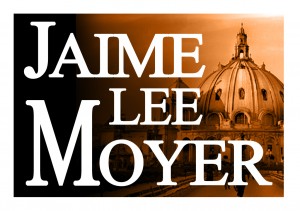 Jaime Lee Moyer is offering a read and critique of the first 75 pages of your finished novel. While she won’t line edit for grammar, she will comment on plot, pacing, character arc, voice, how well the “hook” or opening works, how well the story sustains her interest, and give overall, general impressions of the story. Critique will be done in MSWord via track changes, but please use a readable font and double-space your work. The critique will be returned to you within three months, edit letters and deadlines allowing.
Jaime Lee Moyer is offering a read and critique of the first 75 pages of your finished novel. While she won’t line edit for grammar, she will comment on plot, pacing, character arc, voice, how well the “hook” or opening works, how well the story sustains her interest, and give overall, general impressions of the story. Critique will be done in MSWord via track changes, but please use a readable font and double-space your work. The critique will be returned to you within three months, edit letters and deadlines allowing.
Jaime Lee Moyer is a speculative fiction writer, poet and recovering editor. Jaime is the author of Delia’s Shadow, the first in a three book series coming from TOR beginning in September 2013. Delia’s Shadow won the 2009 Columbus Literary Award for Fiction, administered by Thurber House and funded by the Columbus Art Council. She doesn’t take herself nearly as seriously as that credit implies. Jaime’s short fiction has appeared in Daily Science Fiction, Lone Star Stories, and two of the well-respected Triangulations anthologies. She was the editor of the 2010 Rhysling Anthology for the Science Fiction Poetry Association, a poetry and short fiction editor for a semi-pro zine for five years. For a short period of time she read slush for a literary agent, and has critiqued more novels and short stories than she wants to count.
To bid on Jamie’s read and critique, head to the auction over here.
- A critique of your entire manuscript by Pat Rothfuss.
Patrick Rothfuss (international bestselling author, lover of women, and hirsute iconoclast) will read your manuscript and give you critical feedback. (Up to, say, 250,000 words.) We’ll schedule this based on when your manuscript will be ready and my own schedular constraints.
I’ll read through your manuscript, scrawling notes and dirty words in the margins, then I’ll call you on the phone and we can discuss it. I won’t write you up a detailed critique because that’s not how I roll. But we’ll probably chat on the phone for a couple of hours discussing the various strengths and weaknesses of the book, your writing craft, and I’ll offer any suggestions I might have.
If I think your book is super-awesome, I might be willing to pass it along to someone. But be very aware that what you’re buying here is a critique, not a blurb or an introduction to the publishing world. A critique.
Mailing details and contact with Patrick will be set up following the auction.
To bid on Pat’s critique, head to the auction over here.
- Lottery Item: A critique of your entire manuscript by Pat Rothfuss.
(That’s right, ladies. All of this, and brains too…)
Here’s the deal. I’m well aware of the fact that a lot of authors are starving-artist types. I spent more than a decade below the poverty line working on my books before I was published.
I know those people can’t afford to blow a bunch of money on an auction for a critique, and I feel bad about that.
So this year, I’m throwing a critique into the lottery.
Here’s how it’s going to work. For every $10 you donate to Heifer International over on the Worldbuilders Team Page, you have a chance to win my critique, as well as over a thousand cool books and other goodies we have listed on our main page.
Unlike the books though, who go to pretty much anyone that wins. This prize will be selective. I’m going to call whoever wins it, and if they’re not an aspiring author who wants help with a manuscript, we’ll draw another name. We’ll do this again and again until it ends up in the hands of someone that can use it.
So if the auctions are out of your reach, pitch in on our team page. The more you donate, the more you’re likely to win.
* * *
If you’d like to see all the auctions Worldbuilders is currently running, you can find them over here.
If you want to see the other items that have been donated to Worldbuilders, or learn more about the fundraiser itself, you can head over to the main page here.


